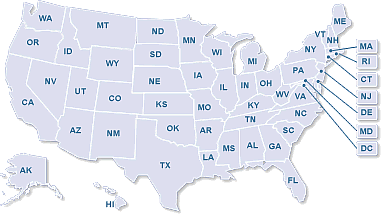While judicial and non-judicial Arizona foreclosures do occur, non-judicial foreclosures are much more common due to the overwhelming presence of Powers of Sale clauses in Arizona mortgages. These clauses maintain that in the event of a homeowne's default, a lender may pursue foreclosure outside of the court system, provided they follow the guidelines for sale outlined in Arizona foreclosures law. A judicial foreclosure is only needed in the absence of such a clause or when there is a problem directly related to the property title itself.
When a homeowner defaults under a Power of Sale mortgage, the lender begins the foreclosure process by scheduling a sale of the property in order to retrieve the debt. This date must be outlined in a Notice of Sale, which the lender provides for the homeowner, and must be scheduled for at least three months after the original default. Copies of the Notice must also be posted on the property in question and on the door of the county courthouse. It must also appear once a week for the three months leading up to the sale in a local newspaper. The homeowner can stop the foreclosure sale from happening by providing the lender with the default amount owed at any point up until 5 p.m. on the day before the sale takes places. The lender must also determine an opening bid and provide the amount to anyone who inquires 24 hours before the sale occurs.
Judicial Arizona foreclosures begin when the lender files a suit known as a Lis Pendens in court. The homeowner receives a copy of the Lis Pendens and is allowed to contest the matter at a court hearing or pay off the debt before the court hearing occurs. If the debt goes unpaid, or the court decides that a default has in fact occurred, they will rule in favor of the lender and order the homeowner's property to be sold on a date to be decided by the court clerk. In this case as well, the homeowner may still halt the foreclosure by paying off the default amount owed up until 5 p.m. the day before the sale actually occurs.
At non-judicial Arizona foreclosures sales, the homeowner's property is auctioned off to the highest bidder by a trustee of the lender. In order to bid, each participant must provide a $1,000 dollar deposit before the sale begins. The deposit of the winning bidder is kept as a down payment. The remaining balance of the winning bid must be paid by 5 p.m. the day after the sale or the sale may be void. Once payment is received, full ownership must be provided to the winning bidder in the form of a deed with seven days. If the proceeds of the sale exceed the amount of the original mortgage loan, the excess proceeds are to be divided up among the junior lien holders. There is no right to redemption provided for the original homeowner once a non-judicial Arizona foreclosures sale concludes.
Judicial foreclosure sales usually take place at least 45 days after the court's initial ruling. The county Sheriff auctions the property off to the highest bidder, who has until 5 p.m. the following day to provide the full amount of the winning bid. Once this occurs, a Certificate of Sale is issued to the winning bidder. Before they can claim full ownership however, the original homeowner is allowed six months in which to redeem ownership by providing the full sale amount of the property. If the original homeowner does not redeem, the Junior Lien holders are given a smaller window of time in which to provide payment and claim ownership. If the Junior Lien holders do not redeem either, the winning bidder receives full legal ownership.



 Versión en Español
Versión en Español 

Social Bookmarks